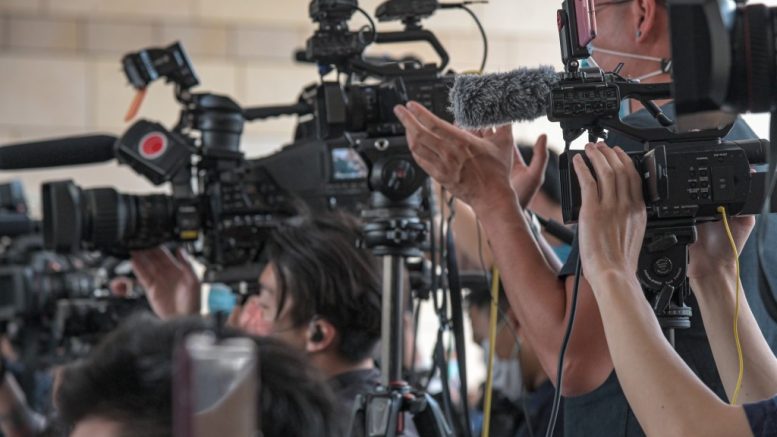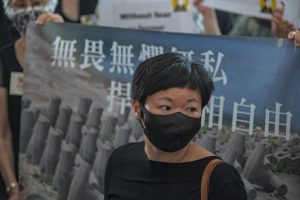By Chris Yeung —
“If the media are silenced and journalists are muzzled, a key pillar of a functioning democracy is crushed. It means that an institution that is vital to a free society, which seeks to ensure accountability, to highlight injustices, to inform the public about matters in their interest, and to serve as a conduit between the people and their representatives, is neutralised. The loss of a free, independent media is essentially the loss of democracy.”
These are remarks made by former UK Chief Justice Lord Neuberger, chair of the High Level Panel of Legal Experts on Media Freedom, barrister and deputy of the panel Amal Clooney, members Baroness Helena Kennedy QC, and barrister Can Yeginsu to mark the annual World Press Freedom Day on May 3.
The importance of a free, independent media could not be emphasised more. That it is rapidly crumbling in Hong Kong, once known for its unfettered freedoms and a vibrant press, could not more saddening.
Arguably, the demise of a free, independent media in Hong Kong, where its partial-democracy is moving backwards towards autocracy, is even more damaging. It will further weaken official accountability and the media’s power to uncover injustice and people’s right to know.
Worse, it has come at a time when strengths of checks and balances by other institutions including the legislature, the judiciary and civil society are being eroded by an increasingly authoritarian executive branch.
The alarming trend of the Government, with the backing of the Chinese Central Government, striving to undermine the power of the media in monitoring the power-that-be began following the outbreak of the anti-extradition bill protest in 2019.
The protest, soon morphed into a social movement, saw systematic moves by the Police to block journalists from reporting the truth on the spot.
With the wave of protest ebbed largely due to the Covid-19 pandemic last year, the Government moved to neuter the power of the media in conducting search of public data in uncovering the truth.
Various departments had either shut the door or imposed restrictions on those searches by journalists on matters including vehicle ownership, properties and land transactions and company directorship.
For the first time, a RTHK programme producer Bao Choy was charged and later convicted of false statements in her application for a search of vehicle registration for a story about the Yuen Long attack on civilians on July 21, 2019.
In justifying the Government’s new curbs on journalists’ access to public data, Chief Executive Carrie Lam has argued that journalists have no special privileges, adding the right to privacy must be protected and doxxing be stopped.
No one is above the law. That is indisputable. The media is no exception. But under the Common Law system, the media are given the right to defend themselves under such laws as libel and privacy on grounds of public interest if their reports are deemed a breach of those laws.
The fact the media are treated differently is simply because the media plays a role of watchdog in the society. By monitoring the power and the rich, the media helps ensure a fair and clean society. For them to play their role, the right to have access to such data as vehicle registration, property transactions and company directorship is important.
That Mrs Lam has sought to stress the media does not enjoy the right to have access to those data, like other ordinary citizens, shows an ignorance of the role of the media as the fourth power – deliberately.
The intensified curbs on media’s access to records seem to be part of the move by the Government to regulate the media systematically. Mrs Lam has repeatedly said in various interviews with mainland media that the Government would “improve” the media system, a synonym of rectification in the communist dictionary.
A key component of the new media system looks certain to feature a law on fake news, which could be invoked to take the Apple Daily to court over cases like publishing a picture of children playing toy gun on national security education day side by side with the image of police brutality at a MTR station.
In their World Freedom Day remarks, Lord Neuberger wrote of the importance of independent judges and media. “Together, they hold power to account, enforce the rights of individuals and shed light on matters of public interest – and they also monitor each other.”
There are no lack of such calls for upholding judicial and media independence in Hong Kong. But like some other places in the world, they have fallen on deaf ears.
This article was first published on Apple Daily website on May 5.



Be the first to comment on "Calls for a free, independent media fallen on deaf ears"